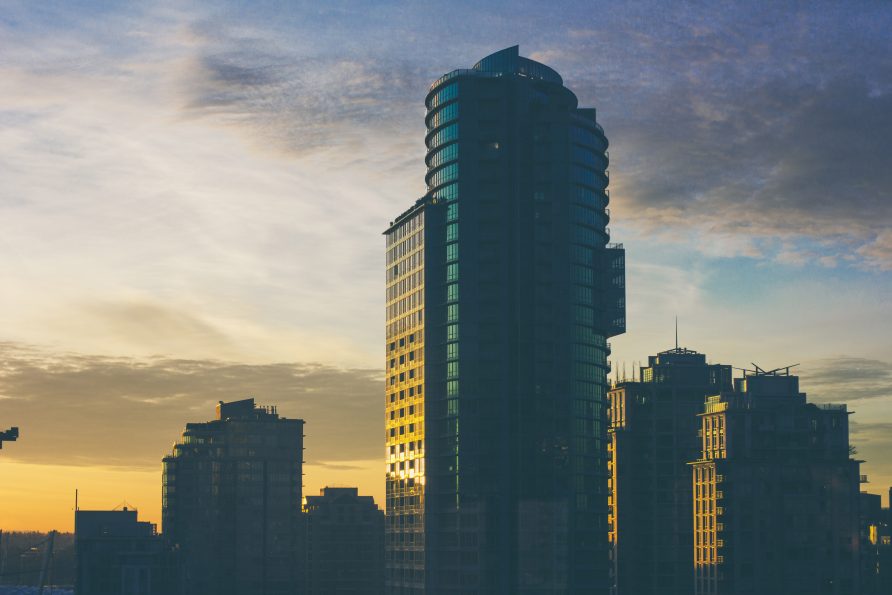There is turmoil in the air around us and is playing out in politics, trade agreements, carbon tax, pipeline protests, mortgage stress tests and real estate sales. At this time prices have risen not declined but affordability is still the unresolved conundrum of these times. Numbers of sales in each area have declined substantially in March although they were off the previous year’s sales numbers in January and February as well.
We are noticing that neighbourhoods with empty houses where offshore buyers purchased second homes or investment properties have been noticeably affected by falling sales numbers.
There are two explanations put forward, one being the mortgage stress test. This particularly applies to entry level buyers with low down payments but also hits move up buyers who have to reduce the house price they qualify for under the raised rate. Buyers now have to qualify for a mortgage two points higher than the actual mortgage rate that they will receive. This was instituted by CMHC in response to a worry by the Bank of Canada that too many people would not be able to pay their mortgages if interest rates rose. It has also been affected by the banks being forced in 2016 to be more responsible for their loans. In the past insured mortgages were on houses not borrowers and they were equal to gold plated government bonds. The Government of Canada was the guarantor of the mortgages and was liable for $484 billion in debt in the third quarter of 2017. Stats aren’t in yet as to the effect of the stress test on numbers of mortgages related to the Government of Canada guaranteed debt.
The second explanation for falling sales numbers concerns newly enforced rules in 2017 by the Chinese government on money being taken out of the country and spent overseas. As it stands each citizen is allowed to take US$50,000 out of the country every year. Chinese companies investing overseas and wealthy citizens removing funds to buy houses in Canada and the US and Australia and Hong Kong were depleting the Foreign Reserves of the country.
Chinese citizens were allowed to convert their funds to US$ online and transfer to an overseas bank account. No longer. Money has to be withdrawn at the Bank and a waiver signed that the money won’t be used to purchase real estate or securities overseas.
There are lots of creative ways to get around these rules and large corporations with funds overseas do so but for middle class millionaires who live in China there is fear that the enforcement will hit them at home. There was expectation that this restriction would impact sales in Vancouver and Toronto in 2017 which actually turned into an outlier year for price increases and sales. However, 2018 appears to be feeling the effects.
Restrictions and adjustments don’t impact greed however. Vancouverites weren’t as shocked as the rest of Canada who saw the news article of the 1922 original house with RM-5 zoning on a 33’x131’ lot in the West End being marketed at $6.98 million as a land assembly with a maximum building size of 6,484 s.f. According to the Vancouver Sun the land is assessed at $3.3 million, the house at $117,000.
Some holdout sellers got their comeuppance from the BC Supreme Court when they tried to delay the sale of a condo building being slated for redevelopment by the majority owners. Owners at Barclay Terrace built in 1992 had gradually been bought out by holding companies owned by Westbank and Bosa. BC strata property bylaws state that when 80% of the owners agree to wind up the strata corporation and sell it then it can be done. Two remaining owners tried to hold out for more money, one for $10 million. When the final sale price of the project was confirmed these sellers did not get from the judge’s decision what they thought they were owed.
It turns out that the original purchasers of individual units and the adjoining townhomes in Barclay Terrace, prominent local developers Bosa and Westbank, fell out over a plan for redevelopment of 1075 Barclay Street. They did agree to sell the property to a major development company out of Hong Kong for $105 million. The Globe and Mail analyzed the transaction and the enormous profit gained by Westbank and Bosa.
Land claim settlements are impacting communities in unexpected ways. UBC has settled with the Musqueam First Nation and will see the population of the endowment lands double. In Area D bounded by University Blvd, Acadia, Agronomy, and Toronto Roads plus Wesbrook Mall there will be 1.2 million s.f. of residential and 30,000 s.f. of commercial construction over the next ten years. The provincial government which administers the university endowment lands or UEL is studying ways to mitigate the impact of such a massive development on the rest of the UEL.
Good news is that Richmond may be coming to the party about mansions on the ALR. There’s nothing like outraged voters to change the Council’s mindset.
The maximum house size of 5,382 s.f. allowed by the provincial government has been modified in Richmond to allow 10,763 s.f. mansions. That was a reduction last Fall from the 12,000+ s.f. homes allowed plus outlying buildings and amenities. Richmond is inundated with applications to build $5 million mansions with amenities on the best farmland in Canada. Mansion owners can pay to have a few acres of blueberries grown on the land and then pay agricultural land taxes instead of residential property tax. There is vocal opposition to change from those hoping to receive windfall profits from their farmland.
We are still waiting for clarity on some of the real estate provisions in the February Budget. More next month. Check out the Stats Report for budget discussion: Vancouver Market in February: Low Inventory in Every Category.
DT00KS
